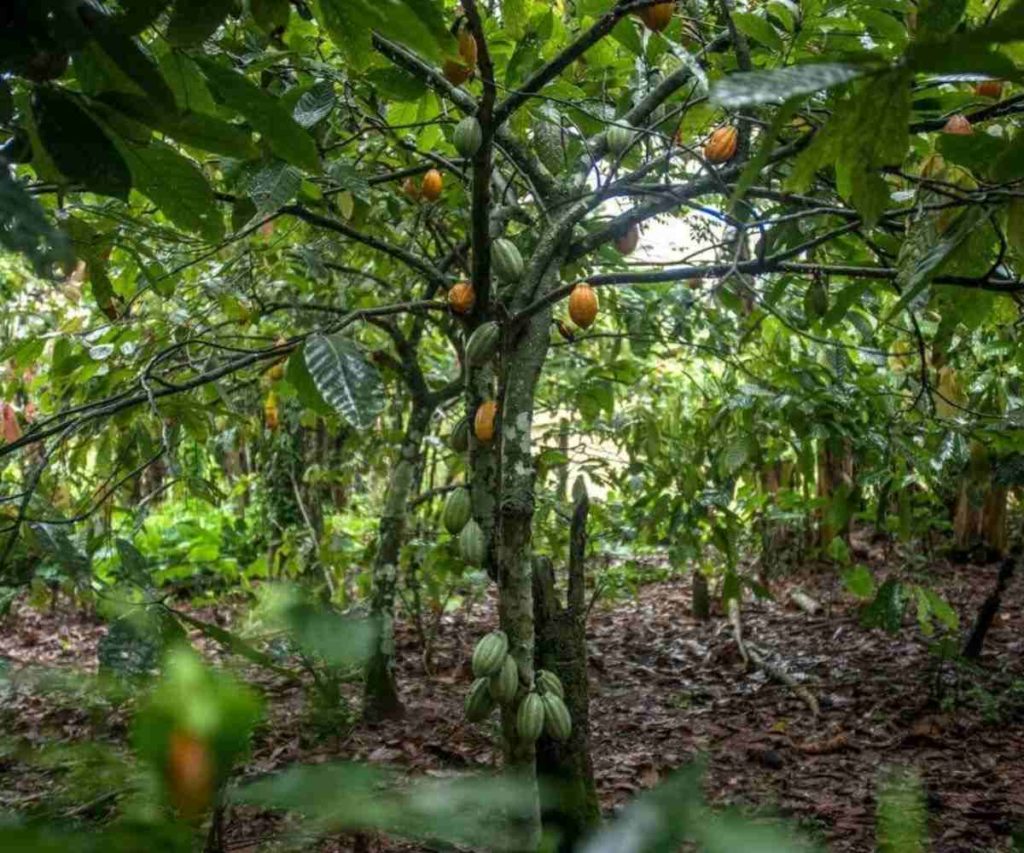The public and private sector, and civil society organisation partners jointly launched the Accessible Soils And Sustainable Environments (ASASE) project in Ghana to support more sustainable cocoa.
Over the next four years the initiative will focus on tackling deforestation and working to rehabilitate ageing cocoa farms and restore natural forests, working towards an environmentally sustainable future for the cocoa sector.
ASASE, which also means “land” in the local Ghanaian language Twi, is a 2.3 million Euro project co-funded by the Netherlands Enterprise Agency (RVO) as part of the Sustainable Development Goals Partnership (SDGP).
The project aims to work with 5,000 farmers in two of Ghana’s main cocoa producing areas, the Ashanti and Eastern regions.
Using a landscape approach, the ASASE project moves away from the traditional focus on the direct supply chain and instead intervenes on 3 levels:
- Working together with cocoa farmers
- Rural communities
- Local forest remnants
Farmers will receive ‘sensitisations’ and trainings on agroforestry practices, as well as land and tree tenure documentation to improve the long-term security of their farms.
Further, the project will facilitate the conservation of forests and the reforestation of degraded areas through approaches such as ‘Payment for Ecosystem Services’, where farmers receive value in return for their efforts to protect or even re-build forests around their cocoa farms.
ASASE figures suggests 800,000 households across Ghana (3.6 million people) rely on cocoa for their livelihoods, but the country is at high risk of deforestation, making the commitment to prevent further conversion of any land for cocoa production imperative.
The lower rainfall and rising temperatures that accompany deforestation risk not only reducing cocoa yields, but also affect subsistence crops, and without tree cover, cocoa farms are exposed to harsh sunlight that can damage trees. Meanwhile, natural forests capture carbon dioxide, increase biodiversity and improve soil quality, providing ecosystem services that entire communities benefit from.
Building on the existing sector-wide Cocoa and Forest Initiative’s (CFI) efforts to end deforestation and restore forest areas.
From the public sector, the Ghanaian Ministry of Lands and Natural Resources (MLNR) will be working to ensure the project aligns with national policy and will use the outcomes to develop future policies.
Meanwhile from the private sector, Meridia, West-Africa’s land rights specialist, will be leading the provision of land and tree tenure rights for farmers.
Leading the partnership is commodity trading house Export Trading Group (ETG) and their associated sustainability foundation Beyond Beans (formerly Cocoanect), whose leadership team bring over 25 years of experience working in sustainability in the cocoa sector.

